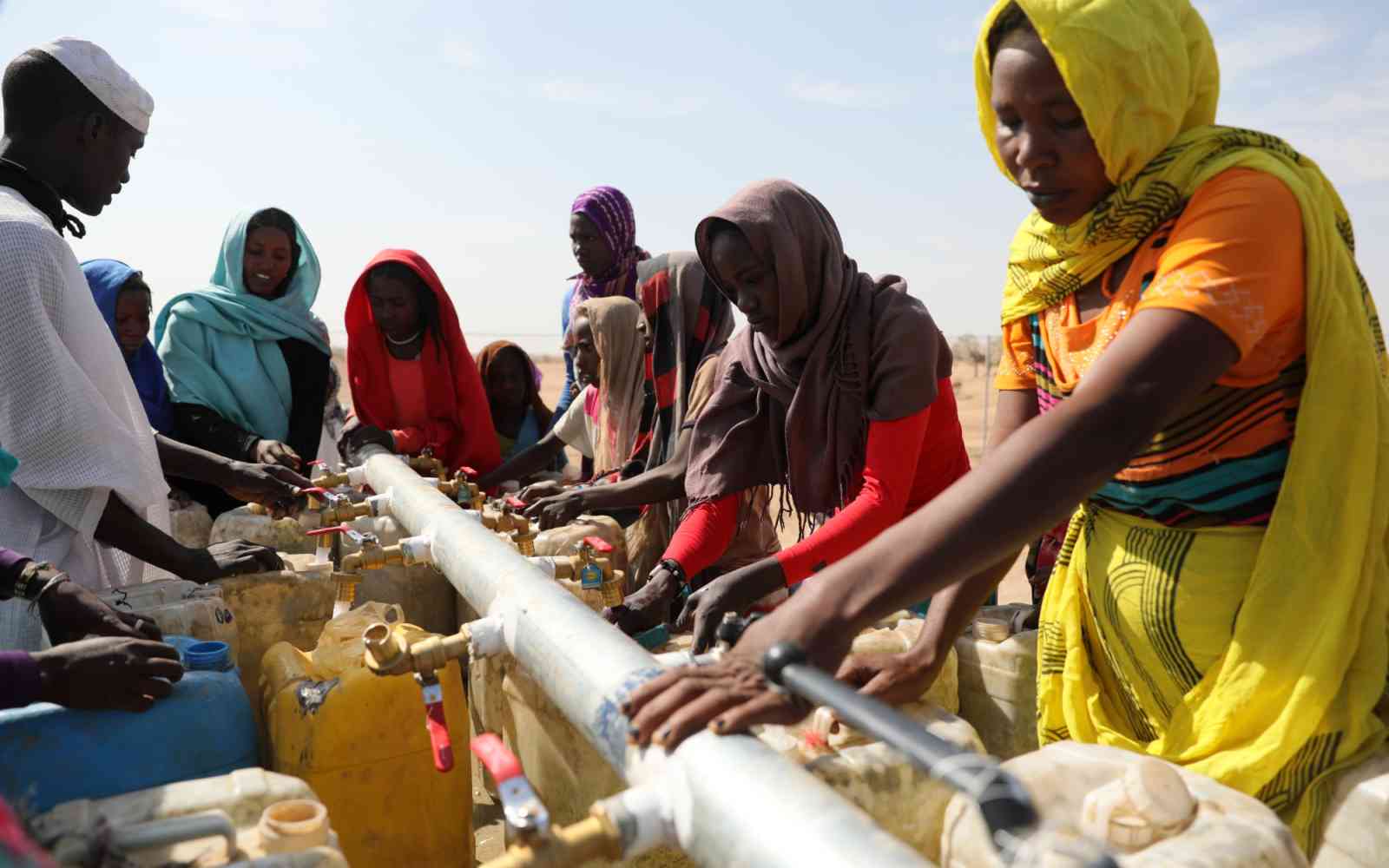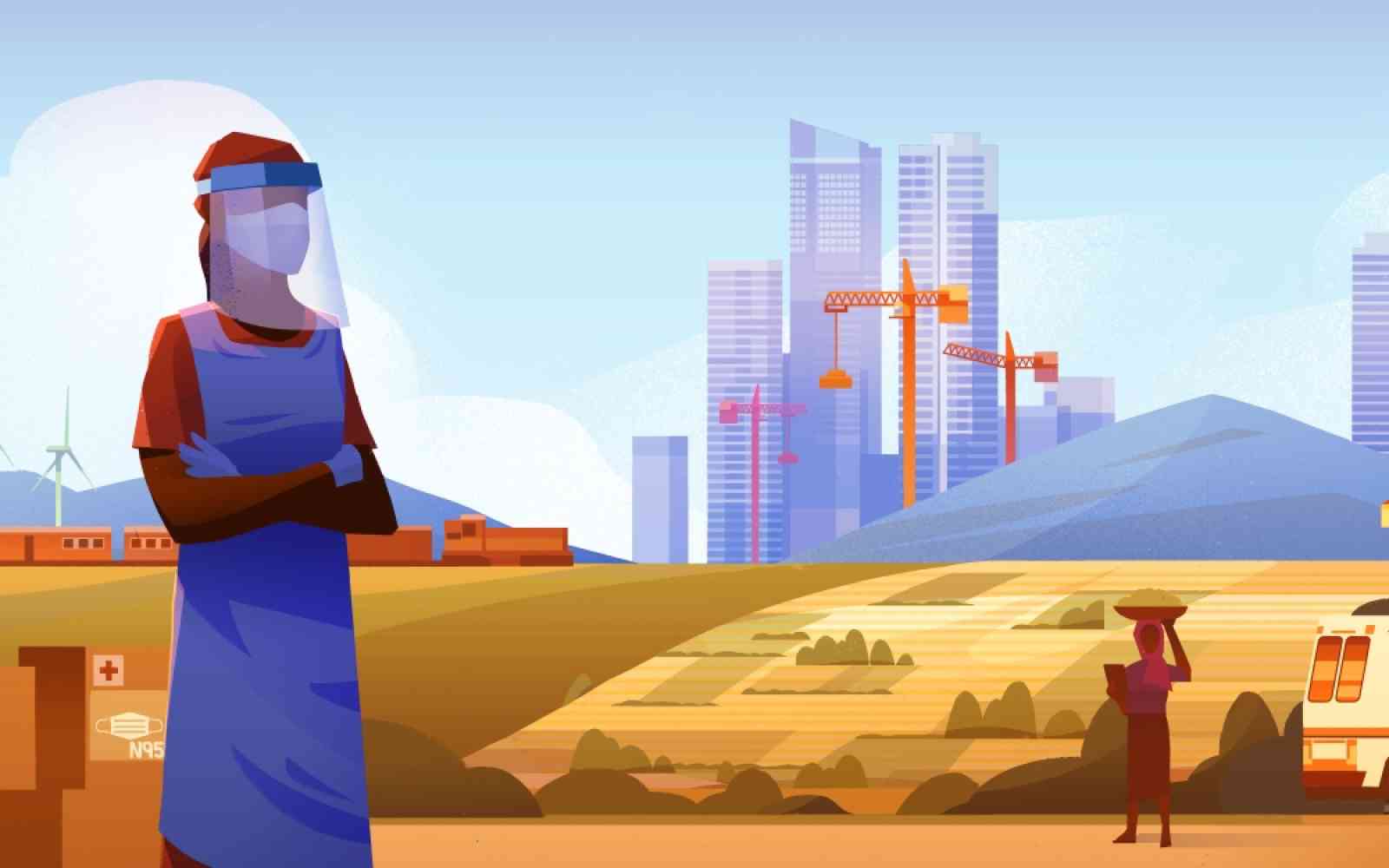The United Nations Office for Project Services (UNOPS)
New research paves the way for building health system resilience
A new UNOPS-supported report published by Economist Impact brings expert perspectives together to examine the immediate actions that can strengthen the resilience of health systems.

The vulnerabilities of health systems around the world have been laid bare by climate change, conflicts and the COVID-19 pandemic. This report – ‘Building health system resilience in an uncertain world’ – draws on interviews conducted with a range of subject-matter experts, representing government, academia and non-profit sectors. It examines the value of building resilient health systems in low- and middle-income countries – on the cornerstones of enhanced coordination, efficient public procurement and supply chains, well-considered infrastructure investments, the adoption of digital technologies and value-based healthcare.
“Our study demonstrates a number of strategies that can be used to strengthen health systems and that building resilience can play an important role in preparing for and responding to future crises,” said Sarah Aleyan, Global Health Manager, Economist Impact.
“Around the world, health systems have been under extreme strain and that means access to safe and reliable healthcare, especially for the most vulnerable people, is threatened,” said Jens Wandel, UNOPS Acting Executive Director.
We’re proud to support this body of research that puts forth key solutions that could help catalyze progress towards building global health system resilience, a critical pillar of the Sustainable Development Goals.
Emerging risks like the spread of infectious diseases, the higher incidence of non-communicable diseases and ageing populations are growing. When met with the turbulence coming from the climate crisis and conflicts, the challenges that health systems are due to face are multifaceted and complex.
“Unless health systems are made to be strong, sustainable and resilient, we will face serious challenges in future,” said Shyam Bishen, Head of Health and Healthcare at the World Economic Forum, in the report.
Through the research, experts make strong arguments for proactive investment in building health resilience today—a crucial step towards early action in minimizing the impacts of future threats.
Also quoted from the report, Somsak Chunharas, President of the Thai National Health Foundation and former Deputy Minister of Public Health for Thailand, said: “If a system is resilient it can better cope in a crisis—but it can also use those characteristics to do many other things in a positive way. Resilience is beneficial for health in general.”
However, despite strong incentives for countries to build their health system resilience, the research finds that a number of complex barriers to remedying the deficiencies in health systems remain. These include health system fragmentation, limited domestic resourcing, manufacturing capacity and poor procurement practices.
Launched ahead of the 2022 World Health Summit, the report presents the most salient strategies to emerge from the research, and paves a clear path forward for policymakers and global health leaders to address key public health challenges.
These strategies are mapped into five key health system functions: governance, financing, resources, infrastructure and delivery. Examples in the report demonstrate that the capacity of health systems to effectively adapt to changing population needs and contexts will play a crucial role in improving health outcomes and preparing for future challenges.
The research concludes that it’s clear that all countries need to ensure that their health systems are better prepared to deal with future shocks and challenges and that lessons from previous crises can be used to inform strategies for building resilience.
This body of work builds on previous UNOPS-supported research led by the Economist, which explores how infrastructure as well as better public spending play a critical role in achieving the Sustainable Development Goals.











